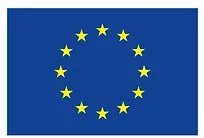
UP2030
Guide cities through the technical and social transition needed to meet their climate-neutral ambitions.

Horizon Europe Programme
Nature-based solutions for Climate Change Adaptation
OiEAU, KWR, EUT, BDG, ENTUA, AQUA, ULL, BEF, VNPA, NAT2050, CSIC, UiT, LLU, ZPR, WE&B, AGT, AQUAFIN ,VUB, De Watergroep, CIEGC, AyLL ,CAN, UIB, PNR, SABV, EPTBV, CBAR, THETIS, BIRZAI, TFFK, MATIS, MS4, FF, WWFGR, CHLKs, IUAV, UNEXE, EWE, RSTE, GIB, IISD.
Ends in September 2028
According to the “European Union (EU) Adaptation Strategy”, there is an urgent need to empower local communities and regions to adopt and share adaptation solutions across the EU. This capacity building will reduce the adaptation funding gap for the development of new policy interventions, as well as reduce reliance on public funding through the adoption of new economic frameworks. Although climate change is affecting our communities, we are in a transformative process that requires consensus and social participation to avoid exacerbating social inequalities, supporting accountability and putting our future cultural and natural heritage at risk.
The NATALIE project proposes to advance the concepts of “ecosystem-based adaptation” in Europe, combined with climate-resilient development pathways, as a means to implement impact-driven nature-based solutions (SBN), which is the cornerstone identified in the recent IPCC AR6 WGII Report.
NATALIE – aligned with the challenges and opportunities of EU climate change adaptation missions, and with the IPC reports – aims to provide innovative solutions and practices in terms of co-creation and stakeholder engagement, modelling, implementation, monitoring and validation mechanisms that will help regions and municipalities to plan and develop adaptation actions. ICATALIST will play the role of catalyst in this project.
According to the “European Union (EU) Adaptation Strategy”, there is an urgent need to empower local communities and regions to adopt and share adaptation solutions across the EU. This capacity building will reduce the adaptation funding gap for the development of new policy interventions, as well as reduce reliance on public funding through the adoption of new economic frameworks. Although climate change is affecting our communities, we are in a transformative process that requires consensus and social participation to avoid exacerbating social inequalities, supporting accountability and putting our future cultural and natural heritage at risk.
The NATALIE project proposes to advance the concepts of “ecosystem-based adaptation” in Europe, combined with climate-resilient development pathways, as a means to implement impact-driven nature-based solutions (SBN), which is the cornerstone identified in the recent IPCC AR6 WGII Report.
NATALIE – aligned with the challenges and opportunities of EU climate change adaptation missions, and with the IPC reports – aims to provide innovative solutions and practices in terms of co-creation and stakeholder engagement, modelling, implementation, monitoring and validation mechanisms that will help regions and municipalities to plan and develop adaptation actions. ICATALIST will play the role of catalyst in this project.

Horizon Europe Programme
Nature-based solutions for Climate Change Adaptation
OiEAU, KWR, EUT, BDG, ENTUA, AQUA, ULL, BEF, VNPA, NAT2050, CSIC, UiT, LLU, ZPR, WE&B, AGT, AQUAFIN ,VUB, De Watergroep, CIEGC, AyLL ,CAN, UIB, PNR, SABV, EPTBV, CBAR, THETIS, BIRZAI, TFFK, MATIS, MS4, FF, WWFGR, CHLKs, IUAV, UNEXE, EWE, RSTE, GIB, IISD.
Ends in September 2028
The NATALIE project will facilitate the co-creation and development of practical and innovative technical, governance, financing and public engagement solutions to help regions and municipalities plan and develop resilience-enhancing adaptation actions.
SBNs are implemented in 8 demonstration sites, which focus on different bioclimatic regions in Europe: Greece, Romania, Latvia, Canary Islands, Belgium (Flanders), France, Norway and Italy (Veneto region), including the replication of SBNs in five other regions in Iceland, Balearic Islands, Romania, France and Lithuania.
SBNs are implemented in 8 demonstration sites, which focus on different bioclimatic regions in Europe: Greece, Romania, Latvia, Canary Islands, Belgium (Flanders), France, Iceland and Italy (Veneto region), including the replication of SBNs in four other regions in Lithuania, Balearic Islands, France and Romania.
In different bioclimatic regions of Europe: Greece, Romania, Latvia, Canary Islands, Belgium (Flanders), France, Norway and Italy (Veneto region), including the replication of these solutions in five other regions in Iceland, Balearic Islands, Romania, France and Lithuania.
